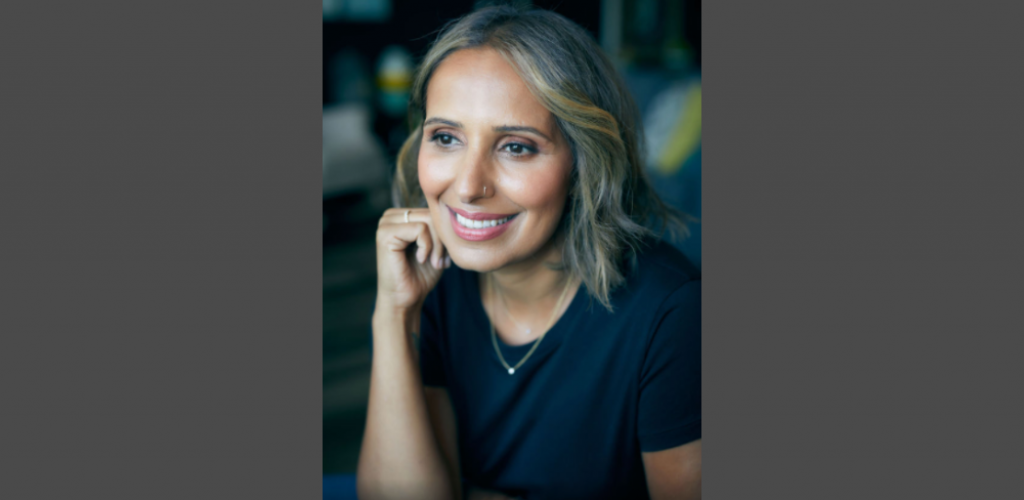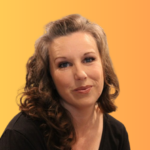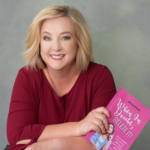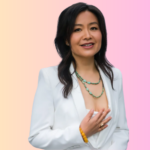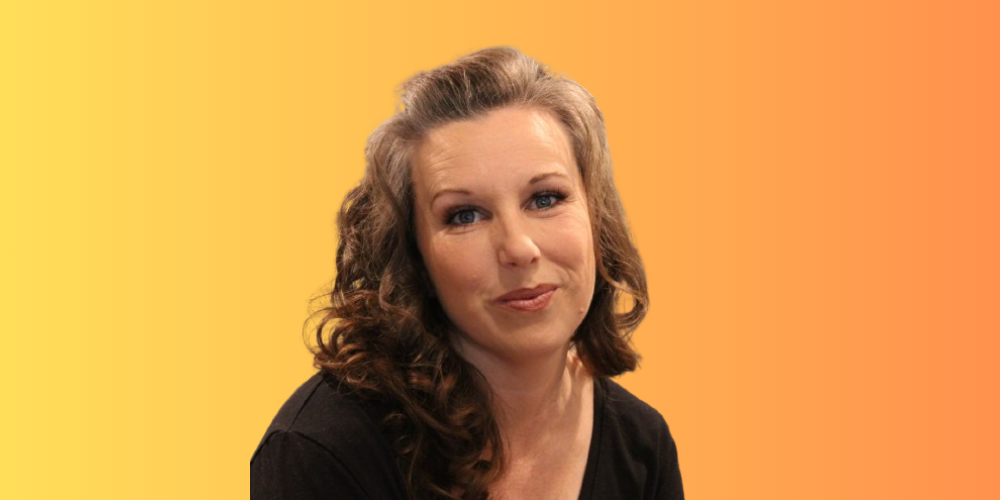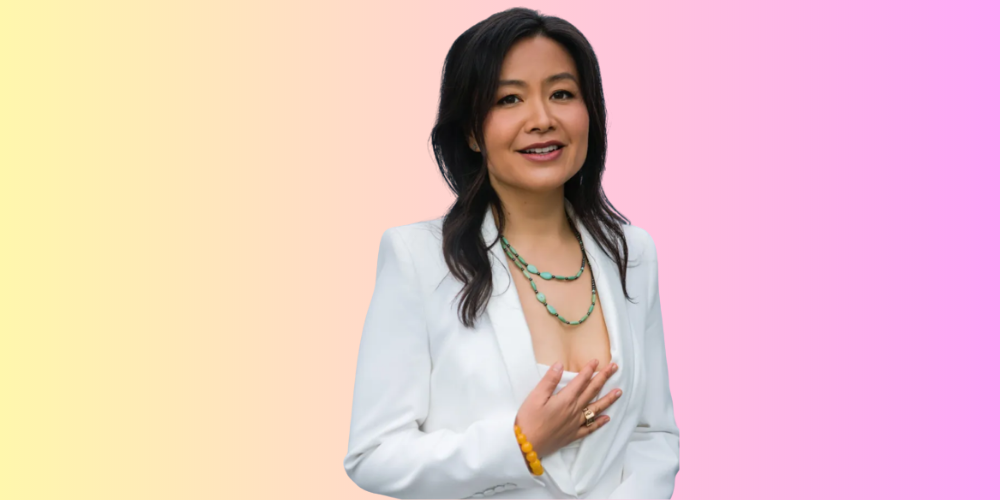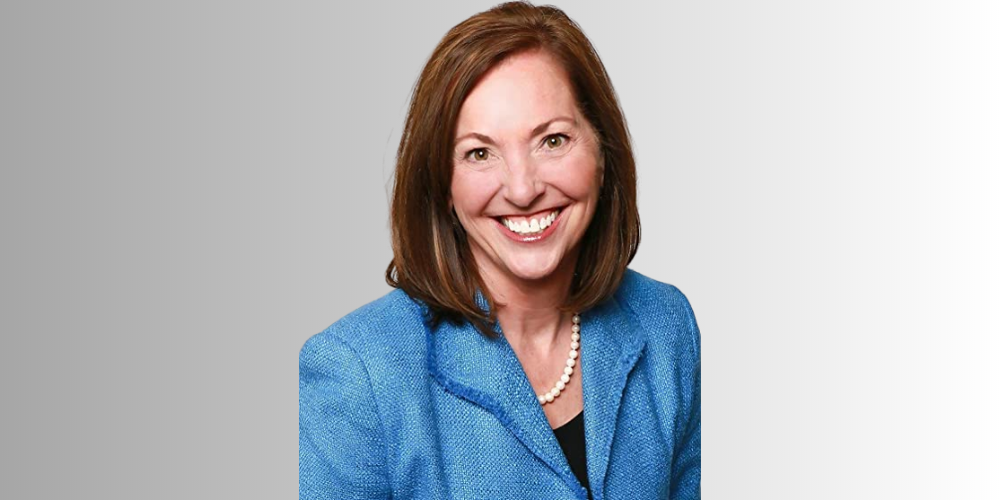Raj Girn: This week’s theme is Mindset and Clarity. And I’ll be tackling the world of wellness today from an angle that I haven’t yet explored, and that’s occupational therapy. My goal is to provide you with a high-level understanding of what occupational therapy is and to provide you with some actionable tips on how to benefit from this, as well as some other tools in a series entitled How to Create Wellness Through Using the Right Tools to Change Your Narrative. To help me do this, my guest today is a long-time friend and colleague, Dimple Mukherjee, who is an occupational therapist, life coach and published author.
Here is Part One of our conversation:
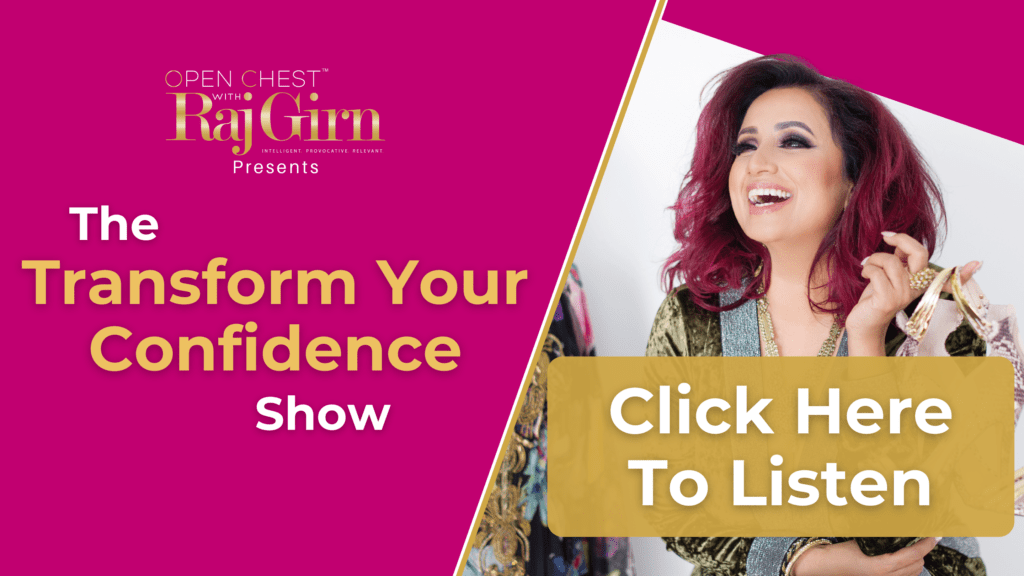
Raj Girn: Welcome to the show, sweetheart. I’m so excited to be doing this with you.
Dimple Mukherjee: And I am so excited to be doing this with you over my favourite topic, which is wellness.
Absolutely. So I want to start our conversation, Dimple, just to kind of contextualize a little bit about what occupational therapy is, because we’ve all heard of it but we don’t really know what it is, when to implement it and what the benefits are. So let’s start there and then roll into the wellness component of our conversation. Are you comfortable with that?
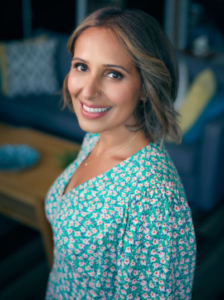
Very. It’s a very good question. You’re not alone. Occupational therapy, historically, has been a little bit misleading because when people think of the title occupational, they think of work. And, in fact, what occupational therapy does it defines occupation as anything that you need to do on any given day. So that could be your work. It could be self-care. It could be parenting. It could be leisure activities. It could be any of that. But in a nutshell, occupational therapy is really aimed at helping someone rehabilitate back to where they were prior to an injury or an illness or an impairment that they’ve had. So in a nutshell, it falls under a rehab professional category, and it’s really to help the individual get back to where they were before they became sick.
So what circumstances would lead to someone needing to solicit your assistance in this? When do they know that it’s you they need to come to?
At any point in their wellness or health journey they start to realize that they’re not functioning. So the function is the keyword, that they’re not functioning at the level they were. That’s when you would actually retain an occupational therapist. And because we work with a wide range of individuals, from infants to the elderly population and the whole gamut in between, there are many specific situations and circumstances when you would retain an occupational therapist. But on the whole, when you find that you can’t do what you need to do in your daily life, that’s when you would retain an OT.
So let’s run a little bit through what that treatment could potentially look like. Obviously, we can’t go into the minutia details because it’s case by case. But if we were to kind of benchmark some of that, can you take me through the general steps a person would be taken through if they were to come to visit you? For anyone that is listening, watching, and reading this, and they’re not quite clear on what would they need to do when they come to you?
Because when we hear these words like occupational therapists, or any of these kinds of titles that we’re not really brought up to understand what they mean, it can be a little daunting and perhaps also it can be a feeling of is there something wrong with me? So that’s kind of the mindset bit of that, that why am I having to go down this road? So let’s put people out of curiosity about this. What could be some of the benchmark things that you would do from beginning to end of treating someone in this particular case?
Sure. So what I want to start off by saying is that within the traditional medical model, OTs (I’m using the jargon for OT, for occupational therapists) are probably one of the very few professions that treats an individual holistically. So that means that if you’re mentally compromised (whether that’s cognitively or emotionally) or if you’re physically compromised, or all three, we’re the person for you. And what I’m going to do is give you an example of someone that we would typically work with. And normally I would give someone an example of an individual with a stroke. But I’m not going to do that. What I’m going to do today is I’m going to give you an example of the COVID long haulers. That is a really good example in this day and age on how we would work with an individual who has gone through that journey and now is left with sort of lingering chronic symptoms. And it entails all of their spheres of health.
“Within the traditional model, OTs are probably one of the very few professions that treats an individual holistically.” ~Dimple Mukherjee
So there are mental deficits as well as physical difficulties that arise because of this. And some of them include things like fatigue, generalized weakness, headaches, compromised ability to do things in your daily life, as well as dizziness. So similar to a concussion. So if you take someone like that, physically, they’re compromised, mentally they’re compromised, not to mention the trauma of actually having COVID. So what we would do is we would go in. It’s a very client-centered practice. You would go in, you would do an assessment where you would sit down with a client and really prioritize what are the things that are important to them, what are the activities that are important to them in their life that they want to return to. So we set goals together that are very client-centered.
And one example for most people would be “I want to be able to shower myself and dress myself and not have my partner or my child helping me through that.” And we start there and we look at how their endurance is and what are the physical limitations, as well as the mental limitations that would prevent them from doing that. And from there, you build up their endurance, you build up their mental stamina. And one of the common things with COVID long haul is the brain. That is the cognitive piece that we would have to work with as well. So usually what we do, there are two techniques. You can either retrain someone so that they are just building up their stamina and their endurance, or you can teach them compensatory strategies or techniques to compensate for what they’ve lost. So in a nutshell, that is really how we approach treatment. We generally work with individuals for a long period of time, depending on the nature of the impairment. So I hope that answers your question. But I thought it would be useful to use an example like that because people can relate to that right now.
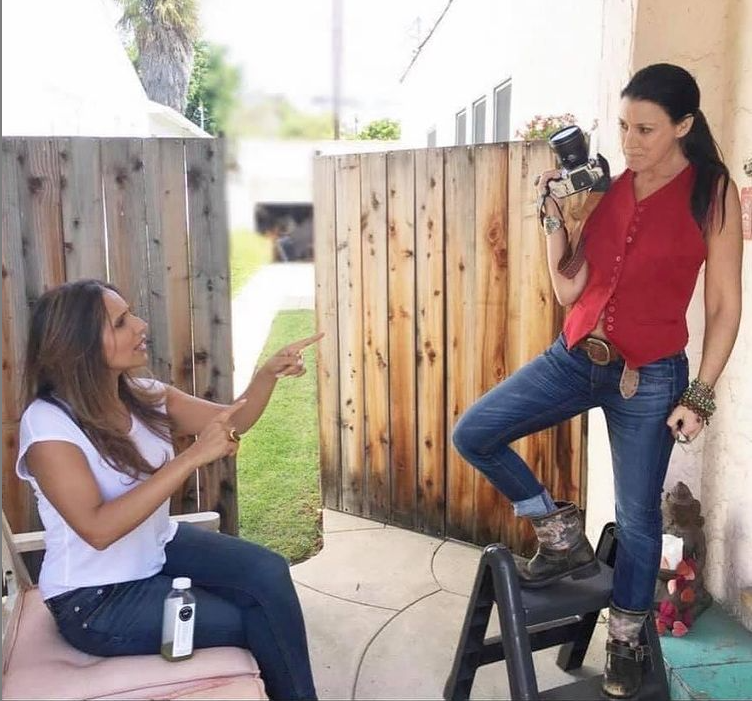
Absolutely. And there’s nothing better than being able to visualize a concept that you don’t really understand or you’re not really familiar with by putting it into a practical sense. So thank you so much for sharing that Dimple. I want to ask you this. What outcome should a person expect for working with an OT that you feel is kind of realistic? And I know that you’re going to say it’s a range. Give us some idea so people can have some sort of an understanding on that.
So, as I mentioned earlier, we consider ourselves experts on function, so the outcome is really determined by the goals that the clients have set. And of course, we help them set realistic goals as well as redefining a new normal. Sometimes it’s just not possible to return to where you were, depending on the nature of your illness. But really, the outcome measure is done through specialized standardized outcome measures that we do an assessment at the start of the treatment as well as the end of the treatment. What individuals can expect is that, at the very least, you are going to regain some of your function, whether that’s through retraining or whether that’s through implementing modified techniques, accommodations, so that you can go back to finding meaning and purpose through the activities that you do. And that’s one of our philosophies as OTs is that we find meaning and purpose through doing, so to be able to help individuals to go back to doing. And perhaps that might mean finding a new activity that is better suited for them so that they’re still able to re-establish meaning and purpose in their life. So overall, that’s sort of the goal, to help them find that back and return to it.
“We consider ourselves experts on function, so the outcome is really determined by the goals that the clients have set.” ~Dimple Mukherjee
You know, I have to admit that I wasn’t really fully familiar with what occupational therapists do. But can I tell you how many people and circumstances that I feel that soliciting your assistance would be extremely beneficial. I can think of so many circumstances where that would be the case. I’m so happy that I brought you on for this show. I really, really am.
I’m so glad to hear that. And you’re not alone Raj. It’s a very complicated and pretty highly regarded profession, and I just stumbled upon it in school. It wasn’t something I was fully aware of what I was stepping into, but I did trust my intuition and I knew my personality was suited to it. So I am very glad that I am an OT because it bodes well not just for the illness model, but also prevention of illness. And then how do we show up in that world of wellness, because there’s that spectrum of illness and wellness. So I love that the profession lends itself to both areas of health.
And knowing you, as I do on a personal level, I can’t think of a more suited profession for someone who is so academically forward as you are. You’re a very different type of out-of-the-box thinker. And wellness is the center core of your essence and your being, and you’re an empathic human being. I can’t imagine anyone better than you that’s suited for this kind of a job description. And it sounds like it requires so much from you on a personal, spiritual, emotional, psychological and academic level. And I want to kind of dive into a little bit of that next.
But before I do, I kind of want to ask you one final question around some of this benchmark stuff and foundational stuff around occupational therapy. Are there any contraindications that people should know about if a person has the symptoms that would lead to them needing an occupational therapist, but another underlying circumstance that would make it prohibitive to work with an OT?
You know, actually, there isn’t. So typically in Ontario, when you need a physician’s referral to see an OT if you want to have the service funded through OHIP. You actually don’t need to go through the doctor if you would retain a private OT. And the reason I say there’s no contraindications to working with an occupational therapist is because a well trained occupational therapist knows what’s their scope of practice versus what’s not. So if you’re clear on your scope of practice, then you actually are well aware of when it would be prohibitory to work with an individual, but often OTs work in acute care settings as well.
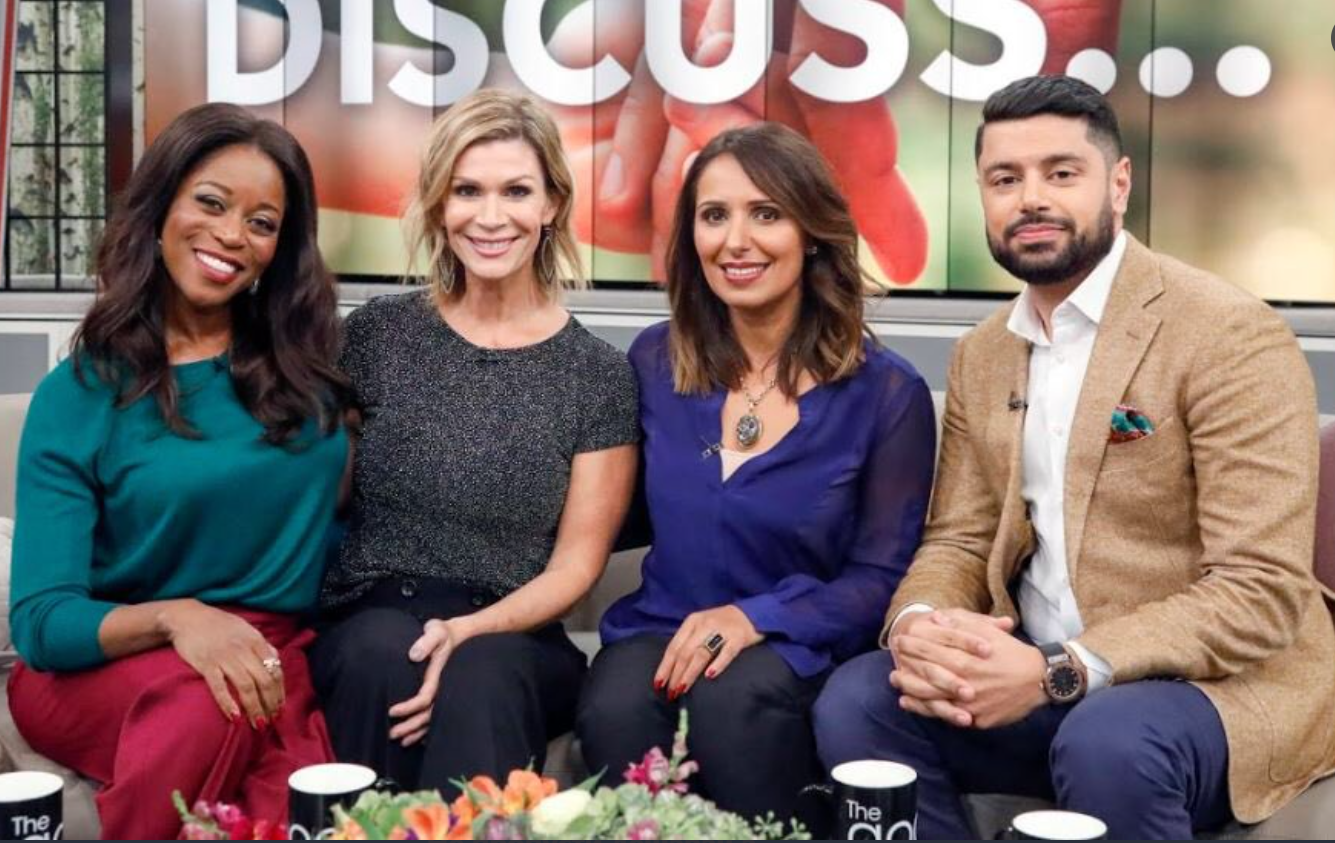
So there’s really no contraindications other than if the individual experiences any acute distress. And that would be the same for anyone in the health care professional that you would have to defer to the medical experts to take care of them. So I’d say the only time it would be contraindicated was if they were still going through a very active medical issues, which means we really don’t have a definitive understanding of what the underlying condition is. And if we’re doing we have with them that may complicate or worsen their condition, then that would be, I think, made well aware to the OT. But other than that, once they stabilize medically, there are no contraindications.
Absolutely, I think that answers all the questions that I had regarding this Dimple. I want to kind of move into the wellness part of our conversation. I’ve done a number of shows on wellness, folks. You know, this and each different type of expert that I’ve spoken to regarding their take on it has had a slightly different viewpoint because of the specific perspective that they come into it from. With that said, Dimple, I want your take on that. What is wellness from your perspective, your lived experience, your professional experience?
Such a loaded question.
I know.
So, you know, I started my profession as an OT in allopathic medicine. And weaving in my own personal experiences with my professional experiences, I’ve come to the conclusion that physical health cannot exist without mental health, and mental health cannot exist without physical health. So I really value both of them equally. I think that just because you’re physically well, it doesn’t necessarily translate to being mentally well. So for me, wellness is a marriage of the two equally well as a life that is not just absence of illness, but a life where you’re thriving and not just surviving. And that really came from my training in positive psychology, which was really around, how do you live a good life?
And to me, it’s about creative expression. It’s about creating a really good balance between your mind, body and soul. So with a lot of those things, but really it’s a marriage of the two equally. And I think oftentimes in the society that we live in, we tend to place a lot of emphasis on physical health, and that’s changing. There’s still a lot of work to be done around that. But for me, it’s to really have it both equally valued and taking the time and the space to invest in both areas of your life. So for me, that’s like thriving, being happy most of the time, and living a good life that way. That’s wellness for me.
“I think that just because you’re physically well, it doesn’t necessarily translate to being mentally well. So for me, wellness is a marriage of the two equally well as a life that is not just absence of illness, but a life where you’re thriving and not just surviving” ~Dimple Mukherjee
Absolutely. So you are definitely a huge advocate for wellness, living and practice a dimensional way of cultivating optimal well-being. I mean, you were talking about well-being, I remember us over a coffee date a number of years ago, where I was like, “okay, yeah.” Like I wasn’t even tapped into my wellness. And you were one of the key people that opened me up to the idea that there is a way to recreate and reimagine your existence from a narrative, a perspective that you create for yourself rather than one that’s been subjected on you. And I do want to kind of tap into that shortly.
But before I do, just for everyone that is watching this, listening to this, reading it, I want to share a little bit about your journey. And I feel that some of this has to do with your lived experience, as I mentioned a little earlier, and some of it to do with your professional experience. But can we contextualize why well being for you is an important part of your life?
It has been the foundation of any adversity that I’ve gone through, and had I not had my health, I think I would have been in a way different place than I am today, which is having grown from the experiences and really applying those learnings into my life right now. So I don’t think I ever take for granted that health is one of my top values. We do work around value and purpose. And what are those top values? And can you name your top five values? And health is definitely one of them. I think through my journey, especially in my sort of early twenties to early forties, so two decades, having a failed marriage. And I say that I failed with a little bit of kindness and empathy because I don’t actually see it necessarily failed.
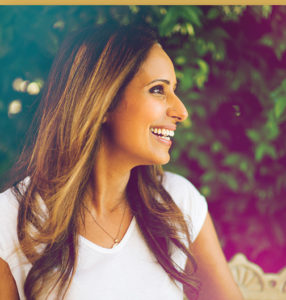
I see it as growth and I see that my ex and I are co-parenting well, and we have a different relationship that is healthier than the relationship we had. So through it all, through the rocky moments of my young adulthood as a woman who self doubted herself probably too much as well as going through the rocky marriage and the rocky relationships there after as well, the romantic relationships, and really being in a place of uncertainty, I think had I not prioritized my physical health, it wasn’t always my mental health at the time, I wouldn’t have been able to stay afloat. So for me that has really carried me through, and so I know the power that good health has, especially during times of crisis and adversity, that can really get you through. And I always say this because I used to teach individuals on how to create rituals, especially morning rituals, which is my jam.
And I remember you did a course on this a couple of years ago, right?
Yes. And I know everyone’s not a morning ritual. Like I’m a morning person, so you can certainly change the timing and do it when the sweet time is for you to do these things. But I was disciplined enough to stay with them through these times. And I think it’s the practices and the rituals that you create during times when things are going well, when things are going well and you maintain them, are when these rituals and practices really become your best friend during times of adversity. And that has been a consistent truth in my life.
You know, guys, if you’re just joining us, I’m in conversation with the fabulous Dimple Mukherjee. She is an occupational therapist. She’s a published author. And she is a wellness coach. And we’re really kind of tapping into this whole idea of wellness. And I’m very kind of intrigued by what Dimple just shared with us now, where she was saying that wellness for her is a very holistic experience. And we hear this right, guys? We hear people talking about holistic experiences, holistic expression, holistic practices. But what they really are is something that we have to really try and test different methodologies and theories and practices and knowledge and resources that are out there. And there are a lot available to figure out what is the best curated format of all of those that makes sense to us.
“We hear people talking about holistic experiences, holistic expression, holistic practices. But what they really are is something that we have to really try and test different methodologies and theories and practices and knowledge and resources that are out there, and there are a lot available, to figure out what is the best-curated format of all of those that makes sense to us.” ~Raj Girn
And similar to what Dimple just said here is that she has this morning practice and I’m also a morning person, so I can truly appreciate how what you do with the first hour or two of your waking day, whatever that may be for you, is the most crucial to set the intention of the kind of day and experience that you want to have, irrespective of all those things that come about that you don’t know or you cannot control. Can I get your thoughts on that Dimple?
Yes. So you actually really touched upon the theme that underlies wellness, and it’s that we have more control than we think we do and that directly relates to empowerment. So really, my main focus in wellness is to help individuals realize that you are more in control of your health than you think you are. But in order to really learn about yourself and about your body and your body’s intelligence, to really kind of be able to communicate with it. So using our mind and body connection, it takes discipline and practice. But it is so gratifying and it is so satisfying to really be in tune with who you are so that you can make the decisions that will serve your wellness the best. Because we’ve heard stories about how a mother’s intuition supersedes any science out there. And there is so much truth to that. And that doesn’t just apply to mothers. That applies to you and your body. And that has been the basis of what I would love for people to take away from our time together if they don’t take anything else away, is that you are in control of more than you think you’re in control of.
“Using our mind and body connection, it takes discipline and practice. But it is so gratifying and it is so satisfying to really be in tune with who you are so that you can make the decisions that will serve your wellness the best.” ~Dimple Mukherjee
Amen to that. Oh, my God it begs so many other questions. So I know I’m going to bring you back on just to have that discussion. I want to tap into something that I feel that you have really hit upon that I want to kind of explore a little bit. And this is the whole idea of the fact that we do control our narrative and that we do have all the tools available to us. And it doesn’t matter what stage you’re at in your evolution as a person, there is a starting point for everyone. So I’m a firm believer that creating wellness is a holistic exercise similar to you Dimple that requires a lifelong commitment to moving the dial on aligning the mind, body, heart, soul and energy field that in ancient India, you know this Dimple, yogis created and have since practiced to optimize well, being something that people are looking at tapping into more today than maybe when you and I were younger. Definitely more than the last couple of hundred years when the industrial revolution kind of changed the landscape of how we’re allowed to function and live.
And that’s a bit of an aside. But I really believe that the industrial revolution put us into these microscopic boxes where we have to fit into the jigsaw puzzle of something bigger. And we weren’t allowed to explore beyond that. And that, I feel, has caused a lot of generational trauma. And I feel that this kind of whole idea of us tapping into our divine feminine, tapping into the age of the Aquarius, depending on whether you believe in this stuff or not. I do. I’ve done a lot of research on this, and I truly believe that when you go back thousands of years, life and history is cyclical and we keep going through the same things until we learn what we’re meant to learn, which is like the wheel of karma, the wheel of Dharma. Right. And Dimple I know that you understand what I’m talking about. I want your thoughts on this whole idea of the yogic practice of wellness, which I know you believe in because you are holistic, just as I am, and we’re on that journey. What are your thoughts of how we could maybe simplify how we can tap into these elements associated with your idea of well-being?
So I have a very simple answer to that.
Okay thank God, because that was a complicated way of me asking you a question
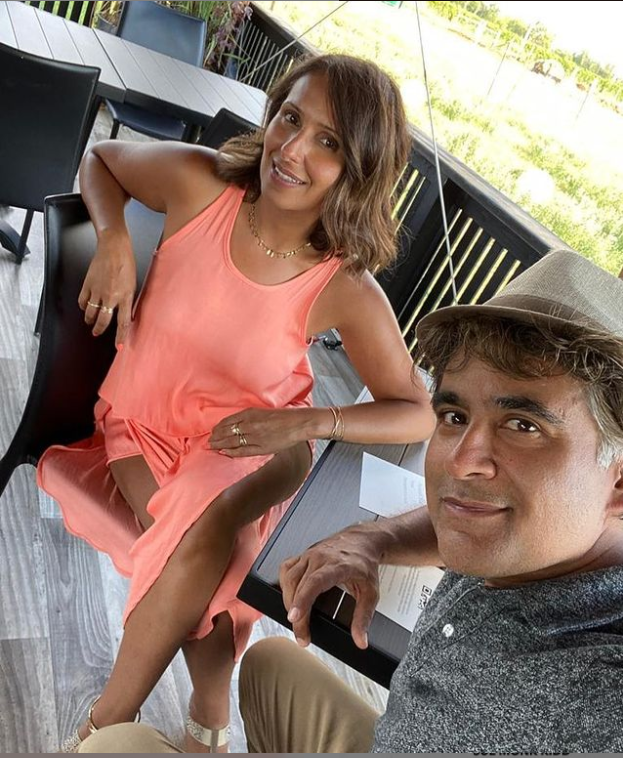
I completely understand everything you’re saying to me. And as you were talking, of course, there was this big piece around patriarchy and around women in medicine and how modern medicine is not really listening to women. And this is a whole different topic on its own that we can have another conversation on. But in terms of inclusion in the interest of inclusion and really talking to everyone here. I’ve learned over the years that wellness can be very difficult for some people, even though it might seem really simple to me. And I’ve learned over the years that it’s not always the tools that people aren’t aware of. It’s really about how do you start. Like you said, this massive journey towards wellness, depending on where you are on that spectrum.
My biggest learnings and takeaways, and when I share this with people, it resonates is just to create space. It is as simple as creating a space for yourself, whether that’s once a week that you want to start with or once a day or whatever it is that suits your lifestyle right now. And it’s a very tiny bite-sized piece. But to cultivate stillness and it doesn’t have to be filled with anything in the beginning, it doesn’t have to be filled with meditation. It doesn’t have to be filled with journaling. It does not have to be filled with reading or listening to audio books. Like none of that has to happen.
But what does have to happen is removing yourself from technology, removing yourself from distractions and really being conscious about what comes up when you’re in stillness. And whether that’s 15 minutes of stillness or an hour away alone. I think we are part of a culture where we want to numb the pain. So it’s a very sort of Band-Aid shortcut. What can I do to take this away from myself? And pain is information. It is not easy. It is not fun. But if you don’t allow it to inform you, it will linger and it’s going to be there for a very long time, which is not what we want either. So all I say is just to find time, if you need to schedule it into your calendar or your analog like I do. Just start there.
“We are part of a culture where we want to numb the pain. So it’s a very sort of Band-Aid shortcut. What can I do to take this away from myself? And pain is information. It is not easy. It is not fun. But if you don’t allow it to inform you, it will linger, and it’s going to be there for a very long time” ~Dimple Mukherjee
You know, you said something there that is just really, really sitting with me right now. And after we’re done with our conversation today, then I’m going to go away and think about this. And I know I’m going to meditate upon it because I know I’ll get the visions I need to get. You said something so powerful that in case anyone missed it, I want to re-say this pain is information. Guys, this is such a profound yet simple idea behind how to tackle the pain that you experience on the different levels that you can possibly experience it. Thank you for sharing that Dimple. That is so powerful and profound that you need to write a book on that pain, right? Write it down, girlfriend. I’m telling you, it’s coming to me.
I know. It took me many years Raj. It’s like I was the master pain number, and it did not help.
To contact Dimple Mukherjee: Web, Twitter, Instagram, Facebook



